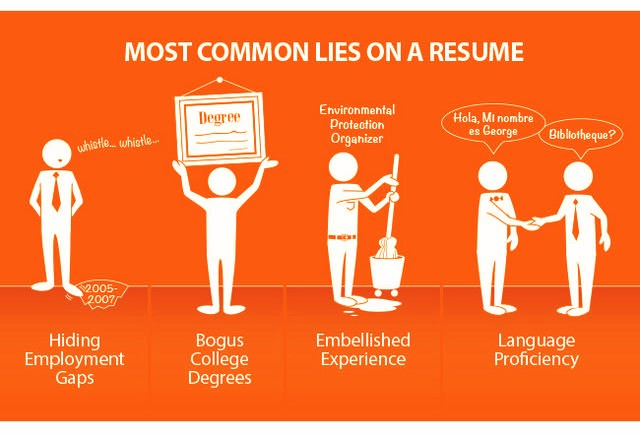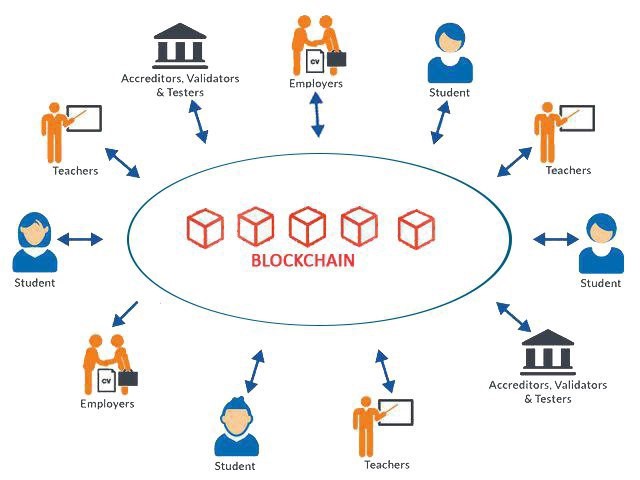How Colleges are Using Crypto Tech to Help Employers Catch Liars Before They're Hired
 |
He looked me straight in the eyes and boasted, "I graduated with distinction from McGill University."
McGill University is often called the "Harvard of Canada." This Montreal-based school is considered one of the top colleges in the world. So, I was impressed. The rest of his resume was just as impressive, and I almost hired him on the spot.
But I don't invest without doing my research, whether it's on a stock or a job applicant.
Good thing, because a simple background check revealed that "Mr. Top of His Class" was a dirty rotten liar.
Not only did he not graduate at the top of his class, but he didn't even finish college — let alone attend McGill.
I didn't know it at the time, but the guy who lied to me has lots of dishonest company.
 |
According to a survey from Ladder magazine, one in 10 people have lied or embellished the truth on their resume.
The reason for the widespread fraud is because it's just so easy to get away with it!
That's because of the way academic data is stored …
Currently, academic data stored across multiple, fragmented systems. This makes it difficult for employers to verify work and school records … and easy for candidates to lie about their credentials.
I'm not talking about Lori Laughlin and Felicity Huffman-type lying and payouts to get into a good college. I'm talking about outright lying about whether they even went to college at all!
The good news is that blockchain-powered technology is going to make it close to impossible to lie about academic credentials.
A growing number of colleges are putting academic transcripts and degrees on blockchain-protected ledgers. The promise of blockchain-based background checks is that those should make it possible for job applicants to share a verified record of their academic accomplishments.
So, potential employers get to know the exact academic qualifications of job applicants … whether prospective employees want them to know them or not!
But this is so much bigger than busting liars. It gives you, your kids, your grandkids or anyone else who is working hard to earn a legitimate degree:
- Degree validation and academic record verification.
- Tamper-proof academic records.
- Complete academic histories through smart contracts.
And yes, every hiring manager know just about every candidate will try to present his or her skills in the best light possible. Well, there's a use for blockchain with that, too.
For example, students can demonstrate their ability to play a musical instrument or prove that they can speak a foreign language, simply by attaching a digital recording to their transcript.
The goals of using blockchain in the hiring process to eliminate the need for costly academic background checks … instantly verify credentials … prevent fraudulent educational claims from impacting the hiring company … and provide a validated academic identity that benefits applicants as well as potential employers.
 |
That's a win-win situation.
The list of colleges putting transcripts on blockchain-protected ledgers is growing fast. The Massachusetts Institute of Technology, Arizona State University and California State University Fresno are the most recent to do so.
Related post: Paging Dr. Blockchain: Why it will pay off big-time to study crypto technology
It is easy to get bogged down in the technical details and difficult-to-understand technology of blockchain, but there is one very simple, very accurate role that only blockchain can deliver.
Blockchain makes it possible to trust people you don't know.
In short, blockchain eliminates fraud.
Tattoo that on your brain. If you understand that simple, but invaluable service that blockchain delivers, you will understand why you absolutely must include a heavy dose of blockchain-focussed stocks to your portfolio.
Plus, blockchain-verified diplomas will put dirty little liars, like my fake McGill University applicant, where they belong: working at the pick-up window of a Burger King.
Best wishes,
Tony Sagami



